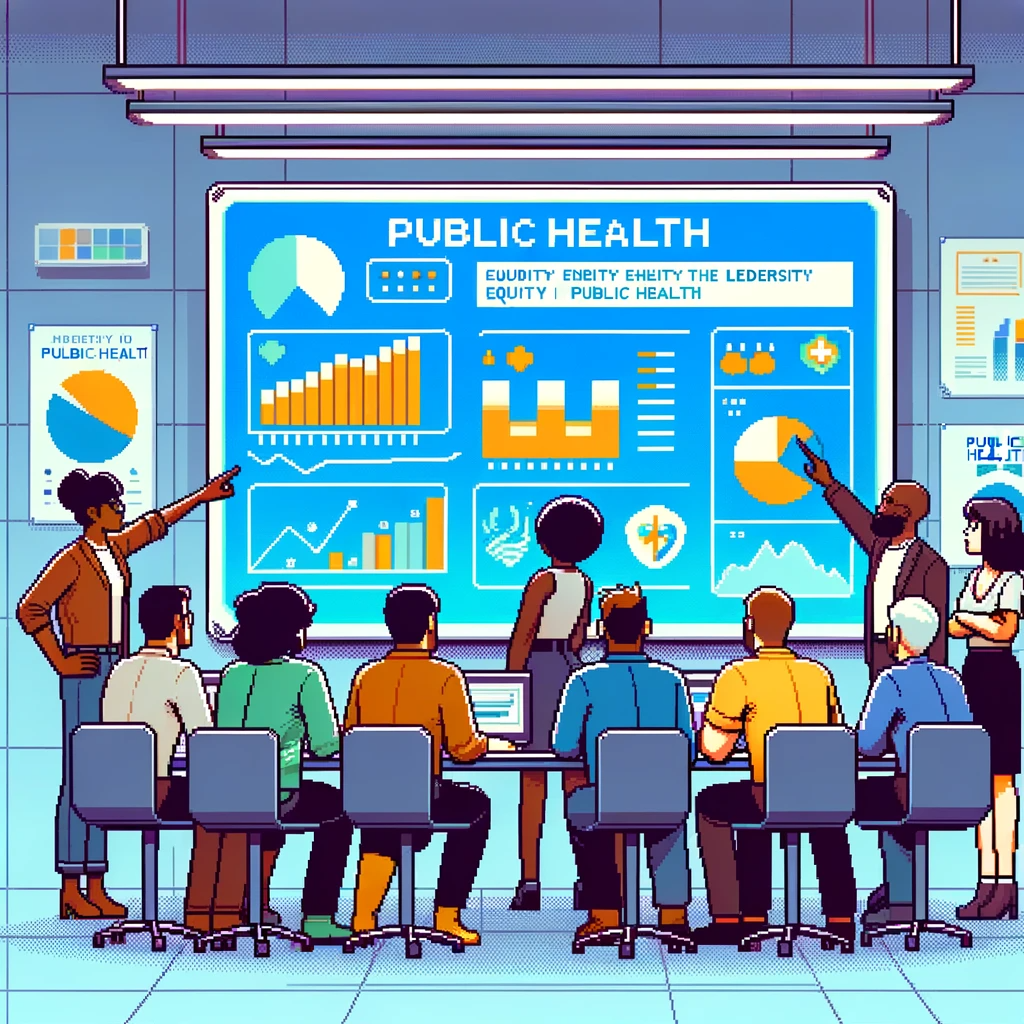Public health relies heavily on data, the science and art of preventing disease, prolonging life, and promoting health. But what happens when this data, crucial for making informed decisions, is tinted with biases?
This is where the article, “Data for Equity: Creating an Antiracist, Intersectional Approach to Data in a Local Health Department,” comes into play. It sheds light on how public health data can be collected and used in a way that promotes equity and fights systemic racism. Let’s unpack this for a high school audience, focusing on its implications for evaluation practice in public health.
Why Does Data Equity Matter?
In public health, data guides everything from policy decisions to community health programs. However, if this data doesn’t fairly represent all communities, particularly marginalized ones, it can lead to policies and programs that don’t address or even worsen health disparities. The article discusses the importance of collecting and using data that reflects the diverse experiences of all communities.
Key Findings of the Study
The study conducted by the New York City Health Department focuses on six key areas:
- Enhancing Analytical Skills: Training staff to include equity in their analysis, ensuring the data reflects the real-world experiences of diverse populations.
- Improving Communication of Data: Learning to report data in a way that does not perpetuate stereotypes or biases.
- Better Data Collection Methods: Gathering data representing all sections of society.
- Engaging the Community: Incorporating the voices and experiences of the community members in data collection and interpretation.
- Building Infrastructure for Equity: Developing systems and practices within health departments that support equitable data practices.
- Leadership for Change: Encouraging leaders in public health to commit to equitable data practices.
Implications for Evaluation Practice in Public Health
Shifting Perspectives on Data
Traditionally, data in public health has been seen as objective and unbiased. The “Data for Equity” article challenges this view, showing that data is influenced by the perspectives of those who collect and interpret it. For evaluators in public health, this means recognizing that their work is not just technical but also deeply social and political.
Inclusive Data Collection
The study highlights the need for evaluators to expand their data collection methods to include underrepresented communities. This might mean designing surveys differently, reaching out to communities in new ways, or even rethinking the kinds of questions asked.
Community Engagement
Evaluators must engage with communities not just as subjects of study but as partners in the evaluation process. This involves actively seeking input from community members on how data is collected and interpreted.
Analyzing Data with an Equity Lens
The article suggests that evaluators should be trained in analyzing data with an eye toward equity. This means looking beyond the numbers to understand the societal factors that might influence health outcomes.
Communication for Change
How evaluators communicate their findings is also crucial. The study advocates for reporting data in ways that do not reinforce stereotypes or biases, and instead highlight the systemic issues that lead to health disparities.
Leadership in Equity
Finally, the article underscores the importance of leadership in driving the change toward equitable data practices. This means evaluators advocating for equitable practices and influencing policy decisions based on their findings.
Conclusion
“Data for Equity” is a call to action for public health evaluators to rethink their approach to data. By recognizing the biases in data collection and analysis, and by actively engaging with communities to understand their experiences, evaluators can play a crucial role in promoting health equity. This is not just about changing numbers; it’s about changing lives.

